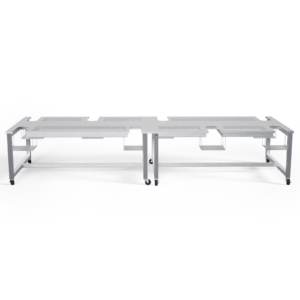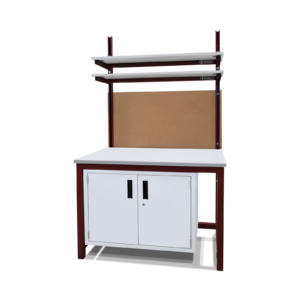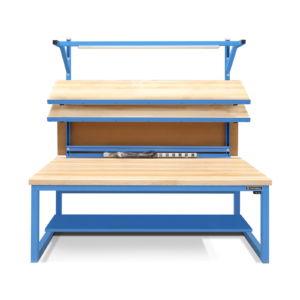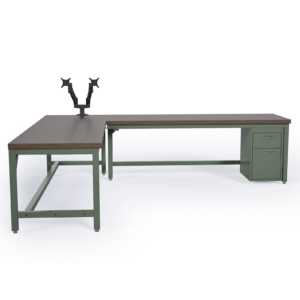At a time when the manufacturing industry is on the cusp of radical change driven by tech advances ranging from 3D printing to artificial intelligence powered robotics, there is a major problem. As Baby Boomers working in the manufacturing industry retire in droves, it turns out that younger people aren’t very interested in taking their place. We take a look at what is being done to make manufacturing careers more appealing to younger generations.
Manufacturing Careers are in a State of Flux
It’s a changing world.
At a time when we’re trying to encourage manufacturing here at home, the underlying fundamentals of the manufacturing industry have been changing rapidly.
Production productivity has gone through the roof, thanks to revolutionary advances in automation. In other words, today’s manufacturing industry can now produce more with fewer employees.
Yet even with the lower number of workers, manufacturers are having trouble finding enough skilled labor to fill the remaining positions. Why? Today’s high-tech manufacturing careers require job candidates with higher levels of education and technical skills than ever before, which narrows the applicant pool significantly. This recruiting issue is further compounded by the huge number of Baby Boomers who are retiring every year.

Unfortunately, this combination of investment in automation and shortage of available workers is dragging down manufacturing job growth projections. The U.S. Census estimates that manufacturing jobs will actually decline slightly between 2016 and 2020 relative to other fields of employment, as shown in their chart above.
To Encourage Young People to Pursue Manufacturing Careers, We First Need to do Some Market Research
Why can’t managers find enough qualified candidates from the younger generations to fill the available jobs in manufacturing careers?
The answer seems to be that younger generations are by and large less interested in working in manufacturing compared to other fields.
But why?
Let’s look at a little market research on the demographics, attitudes, and assumptions about work held by the Millennials and younger generations:
The chart above shows the percentage of employed 25 to 29-years-olds with a bachelor’s degree or more. Four-in-ten Millennial workers ages 25 to 29 had at least a bachelor’s degree in 2016, according to a Pew Research Center analysis of Current Population Survey data. Source: Pew Research Center analysis of 1964, 1985, 2000, and 2016 Current Population Survey Annual Social and Economic Supplements (IPUMS).
Advantages of Younger Workers in Pursuit of Manufacturing Careers
The chart above shows the percentage of employed 25 to 29-year-olds with a bachelor’s degree or more. Four-in-ten Millennial workers aged 25 to 29 had at least a bachelor’s degree in 2016, according to a Pew Research Center analysis of Current Population Survey data. Source: Pew Research Center analysis of 1964, 1985, 2000, and 2016 Current Population Survey Annual Social and Economic Supplements (IPUMS).
- As Digital Natives, they would be more naturally adept at working with computers and modern visualization systems (and the associated with automation and artificial intelligence tools) as compared to workers from older generations.
- Millennials helped create and lead the Maker Movement and its related components, ranging from 3D Printers to Etsy, to Maker Faires and Makerspaces.
Disadvantages when Recruiting Younger Workers into Manufacturing Careers
- Millennials report that they value fulfillment in their careers over more traditional rewards, such as making lots of money. (Manufacturing jobs can be among the highest paid, but this alone appears to be a less important inducement.)
- Census figures indicate that Millennials and younger generations are also less mobile in the workplace economy than previous generations of workers at their age. Thus, they are less likely to move away from home to a new area to pursue a career.
- Finally, the biggest problem: Millennials view manufacturing careers in a negative light. They consider manufacturing (and the related construction field) to be an unattractive, dirty field to work in that offers a less rewarding future than other fields.
How to Build a Marketing Campaign to Promote Manufacturing Careers
For those working in the manufacturing sector (include ourselves here at Formaspace), we see the world quite differently. Manufacturing is an exciting field that’s on the cusp of major, even radical, changes brought about by the digital revolution.
What to do? Many in the manufacturing industry feel that a marketing campaign is the obvious answer.
So we’ll put our marketing cap on for second and create a classic sales funnel to drive prospects through our marketing campaign.
Let’s get started.
For this sales funnel, we want to convince young people to pursue a career in manufacturing.
At the wide end of our sales funnel are prospects that we want to attract by generating awareness and interest. Among those who show interest, we want to follow up by providing knowledge that encourages liking. Next, we want work with those who show signs of liking and encourage them to have a preference and make a commitment to careers in manufacturing.
Generating Awareness and Interest: Leverage the Maker Movement to Get the Message Across that Manufacturing is Cool
Looking at the research in the previous section, it’s clear that while many Millennials and younger generations declare they have no interest in manufacturing (as they understand it), they are, in fact, interested in some of the very things that go along with being a manufacturer, including creative product design, advanced visualization, 3D printing, CNC programming, IoT and app development, and more – except they call it by a different term: being a Maker.
So it follows that for the first step of our marketing sales campaign, we would want to use the existing positive feelings about being a Maker to find prospects that we can attract and interest into learning more about the manufacturing field.
In fact, it might be better to stop using the word manufacturing altogether and talk about Maker careers instead, or focus on some of the many job titles that make up the world of manufacturing, including careers in artificial intelligence software and robot programming, engineering and product design, as well as virtual reality visualization and simulation.
Fortunately, the Maker movement is alive and well, making it an ideal ambassador for the first steps in our campaign (awareness and interest) to make manufacturing careers cool again.
Did you know that you can turn to Formaspace to help build a Makerspace? We’ve helped library systems, educational systems, and museums build successful Makerspaces that help encourage younger generations to want to become builders and makers.
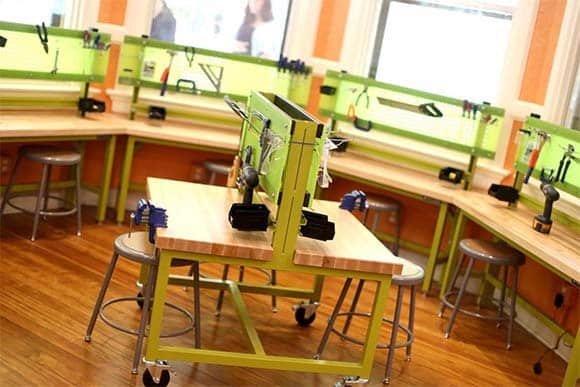
Offering Knowledge and Encouraging Liking of Manufacturing Careers
The next step in our marketing campaign is to talk to those who are interested in making things, and give them more information (knowledge) to convince them that they might like to pursue a career in manufacturing.
Fortunately, there are signs that industry, communities, and educators are working more closely together than ever before to educate and encourage young people.
In addition to promoting Makerspaces, many regional groups are banding together to conduct special educational events around Manufacturing Day* to interest and educate younger people curious about manufacturing careers.
*Manufacturing day is officially October 6, but events occur throughout October each year.
In the manufacturing hub of Greenville, South Carolina (which has more than 100,000 manufacturing jobs across the region according to the Upstate SC Alliance), high school students recently gathered at the Greenville Tech’s Center for Manufacturing Innovation (CMI) as part of National Manufacturing Day. Nineteen different area’s manufacturing companies offered on-site tours at facilities ranging from the Swiss-based ABB gear factory to the Italian-owned Pirelli tire manufacturing facility.
As fewer and fewer young people take summer jobs in lieu of attending summer education programs, summer camps can be one of the most effective tools for providing in-depth education and exposure to the careers skills needed to succeed in manufacturing. These camps range from coding classes to Makerspace programs to product design and pitching competitions.
Preference and Commitment: Major Changes Needed to Achieve Long-Term Success
Once we have younger generations interested and liking what they’ve heard about manufacturing, we need to make sure the tools are in place to maintain their preference and commitment over time as they join the manufacturing workforce.
(In other words, it’s no use bringing a lot of interested candidates to manufacturing only to have them become discouraged and leave the industry prematurely.)
What can be done?
A lot, actually. There are both immediate and long-term needs at hand.
On the future horizon, many changes are coming as technology continues to impact the very nature of product and manufacturing industries. The Pew Institute has produced a thought-provoking analysis on the impact that artificial intelligence and automation will have on the overall jobs market. It’s worth a read.
The manufacturing industry is coming to grips with these changes and is seeking ways to make deep structural changes in our educational system, by encouraging both skills teaching and certification programs in the school curriculum. For example, the National Association of Manufacturers has created a Toolkit that includes a series of useful planning materials (click here for the PowerPoint worksheets) designed to jump-start activities in your local community and school district.
(Tip: download this PDF for links to all NAM job development programs.)
Advocates for manufacturing are also looking abroad for inspiration. For example, there is little dispute that German manufacturing prowess is among the best in the world, and as a result, increasing attention is being paid to the nuances of German-style apprenticeship programs. Unlike the disappearing vo-tech education programs in the US, the German system provides its younger workers with a strong vo-tech educational program that integrates alternating days working as apprentices at German manufacturing companies (with the expectation of future employment for successful graduates). This approach provides a strong measure of preference and commitment to a long career in manufacturing.
What is Formaspace Doing to Encourage Careers in Manufacturing?
Taking a cue from the recommendation of the National Association of Manufacturers, Formaspace is working with the local Austin community to help encourage people to choose a career in manufacturing.
We are working with the Austin Regional Manufacturers Association (ARMA) whose mission is to strengthen the Central Texas manufacturing community through advocacy, workforce development, and networking. ARMA has programs that help match young people with the area’s manufacturing industry, including some of Austin’s largest employers, such as Applied Materials, Samsung, Freescale, National Instruments, Dell Computers, 3M, Hospira, and Flextronics.
Interested in a Better Manufacturing Career? Join Us at Formaspace.
As a leading manufacturer of furniture for the Fortune 500 manufacturing, laboratory, education, and office markets, Formaspace is proud to tell you more about our company values, our production team, and our quality products.

So if you are interested in a career in manufacturing or if you want to make your manufacturing facility more productive, talk to us. We’re happy to assist with a range of solutions, ranging from Rapid Plant Assessment services to building customized industrial furniture that will make your facility more efficient than ever.
Just fill out the quick contact form below, and we’ll get the conversation started.








